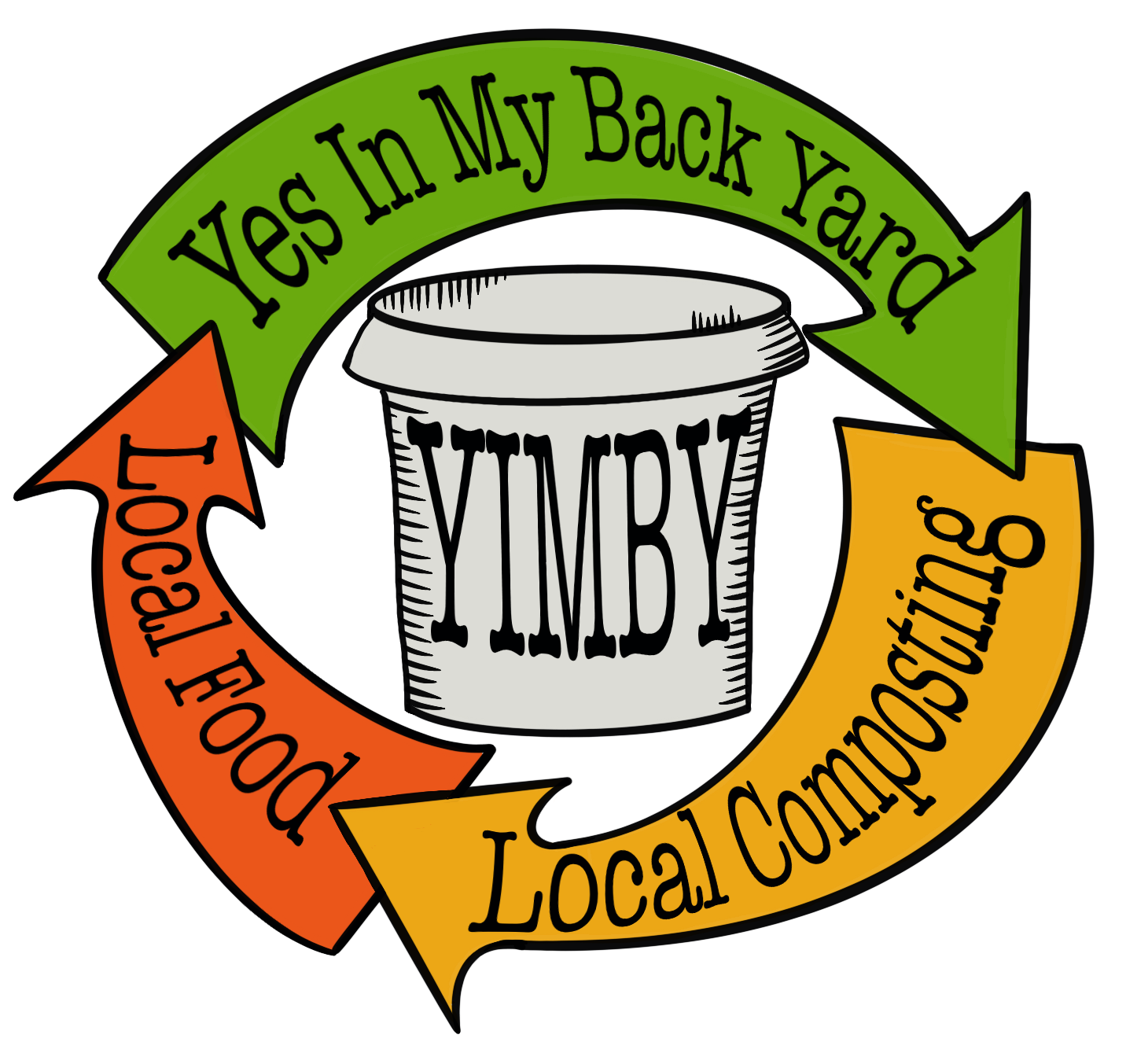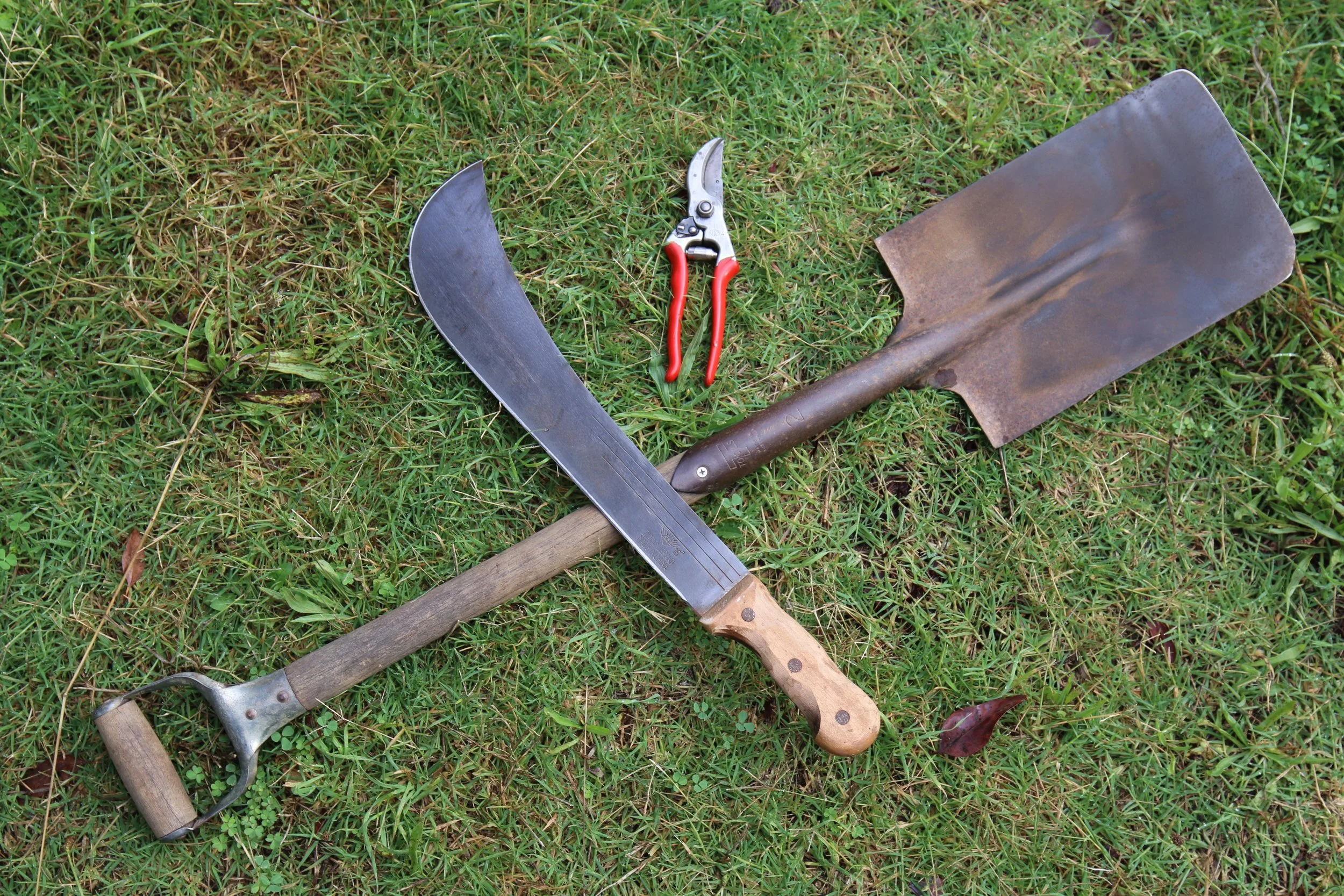The big chop
It’s important to chop our compost ingredients fine enough so that they have the right consistency to break down perfectly in our compost piles, not too coarse, not too fine, think about every bit of nitrogen-rich food scrap being small enough to be in good contact with some carbon-rich ingredient.
Let’s have a look at some of the tools we can use to do this work.
At YIMBY* we have found the machete (a big bush knife) a great composting tool and I always have mine on hand near the compost bays. Food scraps tipped on top of the compost pile are easily chopped to a good consistency with our machete and can be spread out to a consistent thin layer with the end of the blade.
The machete is a jungle tool, and juicy stemmed garden prunings - SUCH AS freshly picked stems of plants gone to seed like silverbeet, celery, lettuce, artichokes - are quickly reduced to a pile of short chopped (20cm or under) compost additions with our machetes.
A sharp machete blade means I don’t have to hack as hard – safer for fingers in the long run and I always wear a glove on the hand holding the stem Alternatively chopping the prunings on a straw bale placed on-edge keep the machete’s work swift and safe (thanks to YIMBY composter Ilka White for this tip).
When prunings are a bit woody and dry or too rubbery and flexible (think tomato stems, long grass or any of the previous list or stems that have been left to dry for a few days) the machete struggles to do the chopping job. This is where a good sharp pair of secateurs excels.
If you find yourself with a barrow-load or more of this type of material, chopping it all up with secateurs can be slow work and your forearm and hand might get very sore.
Many materials can be dealt with quite effectively by putting them down on soft ground and chopping them up with a sharp spade. Sharp tools really do make working easier.
Powered mulchers (petrol or electric) are a tempting option when our piles of carbon-rich materials get out of control, and in spring and autumn it can be very hard to keep up with the rate of growth, particularly in a big garden. Perhaps a powered mulcher will work well for you, but keeping this work human-powered reduces energy and material use and keeps us strong and fit - always good things to work towards.
At YIMBY, we encourage our composters to keep their carbon-rich piles at a manageable size by making the chopping-up a regular weekly task. Why not try making this a small but regular part of your weekly composting rounds?
Next week we meet some composters in our community.
AUTHOR: JOEL MEADOWS
*It would be remiss to assume that everyone knows what YIMBY is! So here’s the basics. YIMBY is a community composting initiative that currently supports 17 composters to collect food scraps on a weekly basis from their neighbours and turn it into high quality compost, in their own compost piles. We currently have over 240 weekly contributors and to date have collected almost 10,000 buckets, or 31,000, kilograms of food scraps. We have collectively made around 21,000 kgs of high quality compost.
Joel Meadows works with Yes In My Back Yard, (YIMBY), a community-scale composting initiative in Castlemaine and surrounds. Send questions or comments to hello@yimbycompost.com

